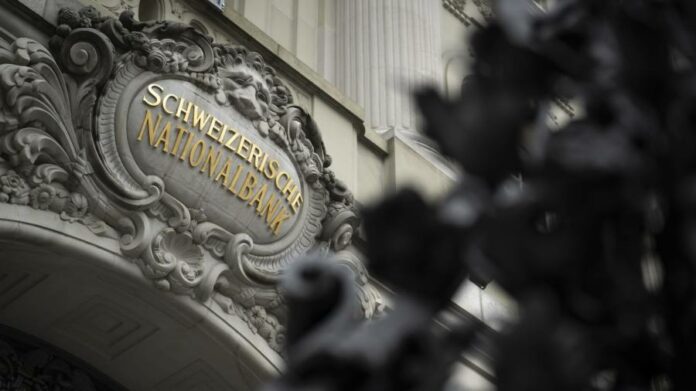The Swiss National Bank raised interest rates by 0.5 percentage points on Thursday, as policymakers warned of persistent inflationary pressures in the alpine state.
The third consecutive rise made by the SNB — which ended its seven-year monetary experiment of enforcing negative rates in September — was in line with market expectations. The SNB’s benchmark policy rate is now 1 per cent.
So far Switzerland has been spared the effects of surging prices being felt elsewhere in Europe, thanks largely to the strength of the franc which has risen by 4 per cent so far this year on a trade-weighted basis. Inflation fell to 3 per cent in November, compared with 10 per cent in the neighbouring euro area.
But the central bank has warned it fears price pressures are becoming more entrenched in some areas of the economy and warned of significant “macroeconomic uncertainties” next year.
SNB president Thomas Jordan said at a press conference in Bern on Thursday that inflation remained “clearly above the range the SNB equates with price stability”. He added: “It is still too early to sound the all-clear.”
The SNB revised its medium term inflation forecasts for Switzerland slightly upwards. “[The] new forecast . . . is attributable to stronger inflationary pressure from abroad and the fact that price increases are spreading across the various categories of goods and services in the consumer price index,” the bank said.
Rate-setters expect an average annual inflation rate of 2.9 per cent for 2022, 2.4 per cent for 2023 and 1.8 per cent for 2024. The central bank targets inflation of less than 2 per cent.
The SNB’s economic outlook, meanwhile, predicts global growth will slow significantly in the coming months. In Switzerland, it expects the economy to have grown by just 1 per cent this year, with a forecast of an even lower growth in GDP of just 0.5 per cent next year.
“Despite the recent tightening of its monetary policy, the SNB is still worried about long-term risk to price stability,” said Maxime Botteron, a macroeconomist at Credit Suisse. The SNB “is not done”, he said. Botteron expects a further rate rise of 25 bps at the bank’s March monetary policy update. But, he added, the improving inflationary outlook now made further increases in 2023 less likely.
Jordan said the SNB would continue its policy of targeted interventions in foreign exchange markets to stabilise the value of the franc. The bank has sold foreign currency reserves at several points over the past few months to “ensure appropriate monetary conditions,” Jordan said.
The SNB’s longstanding policy of market interventions has significantly swollen the size of its balance sheet over the past decade, as it has tried to stop the franc appreciating too quickly. SNB assets stood at just over SFr900bn ($969bn) at the end of November, including SFr821bn of foreign currency investments.






